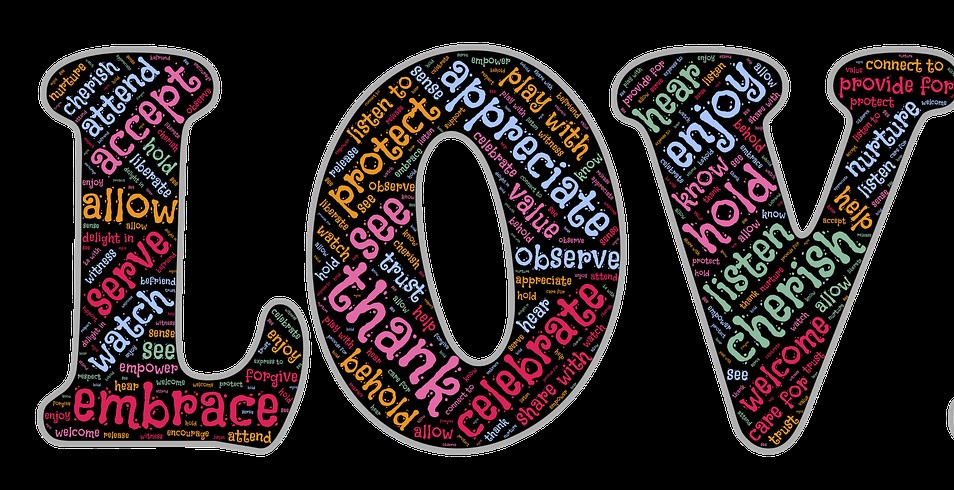Exploring Love: From Romance to Agape
Love is an emotion that has captivated humans for centuries. It is a feeling that can bring immense joy and happiness, but it can also cause great pain and sorrow. Love can take on many forms, from the romantic love that we see in movies and novels to the selfless love of a parent for their child. In this article, we will explore the different types of love and their significance in our lives.
What is Love?
Love is often described as an intense feeling of affection towards someone or something. However, it is much more than that. Love is a complex emotion that involves a deep connection and attachment to another person, object, or idea. It is a feeling that can be both physical and emotional, and it can manifest in different ways.
The Importance of Love
Love is essential for our well-being. It provides us with a sense of belonging and security, and it helps us to form meaningful relationships with others. Love also has a positive impact on our mental and physical health. Studies have shown that people who experience love and affection regularly have lower levels of stress and anxiety, and they are also less likely to suffer from depression and other mental health problems.
In conclusion, love is a fundamental human emotion that plays a significant role in our lives. In the following sections, we will explore the different types of love and how they can impact our relationships and our overall well-being.

The Science of Romantic Love
Love is a complex emotion that has been studied extensively by psychologists and neuroscientists. According to research, romantic love is driven by a combination of biological, psychological, and social factors.
Biologically, love is associated with the release of certain chemicals in the brain, such as dopamine, oxytocin, and serotonin. These chemicals create a pleasurable feeling that reinforces the desire to be with the object of one’s affection.
Psychologically, romantic love is influenced by factors such as personality traits, attachment style, and past experiences. For example, individuals with an anxious attachment style may be more likely to experience intense romantic love and have difficulty maintaining long-term relationships.
Socially, love is shaped by cultural norms and expectations. For example, the ideal of romantic love portrayed in media and popular culture may influence individuals’ expectations and behaviors in their own relationships.
Building a Strong Romantic Relationship
While romantic love can be intense and all-consuming, building a strong and healthy romantic relationship takes effort and commitment. Here are some tips for building a strong romantic relationship:
- Communicate openly and honestly: Good communication is essential for any relationship to thrive. Be open and honest with your partner about your thoughts, feelings, and needs.
- Practice empathy and understanding: Try to see things from your partner’s perspective and be understanding of their feelings and needs.
- Make time for each other: In the midst of busy schedules and responsibilities, it’s important to prioritize spending quality time with your partner.
- Show appreciation and affection: Small gestures of appreciation and affection can go a long way in strengthening your relationship.
- Resolve conflicts constructively: Conflict is inevitable in any relationship, but it’s important to approach it in a constructive and respectful way.
By focusing on these key areas, you can build a strong and lasting romantic relationship that brings fulfillment and happiness to both you and your partner.

Unconditional Love
Unconditional love is a selfless and pure form of love that is not based on any conditions or expectations. It is a love that is given freely and without any limitations or reservations. Unconditional love is often associated with Agape, which is the highest form of love in the Greek language.
What is Unconditional Love?
Unconditional love is a love that is given without any expectation of receiving anything in return. It is a love that is not based on any conditions or limitations. Unconditional love is often associated with the love that parents have for their children or the love that people have for their pets. It is a love that is pure, selfless, and unconditional.
Unconditional love is not just limited to romantic relationships or family relationships. It can also be applied to friendships and even strangers. When we show compassion, kindness, and empathy towards others, we are expressing unconditional love.
How to Cultivate Unconditional Love
Cultivating unconditional love requires a shift in mindset and a willingness to let go of any expectations or conditions. Here are some ways to cultivate unconditional love:
- Practice self-love: Start by loving and accepting yourself unconditionally. When we love ourselves unconditionally, we are more likely to love others in the same way.
- Show compassion: Practice empathy and understanding towards others. Try to put yourself in their shoes and understand their perspective.
- Let go of judgments: Avoid judging others and instead focus on their positive qualities. When we let go of judgments, we are more open to accepting and loving others unconditionally.
- Practice forgiveness: Forgiveness is an important aspect of unconditional love. Learn to forgive others for their mistakes and shortcomings.
Cultivating unconditional love is a lifelong journey that requires patience, understanding, and a willingness to let go of our own ego. When we are able to love others unconditionally, we are able to experience a deeper sense of connection and fulfillment in our relationships.
| Key Takeaways: |
| • Unconditional love is a selfless and pure form of love that is not based on any conditions or expectations. |
| • Unconditional love requires a shift in mindset and a willingness to let go of any expectations or conditions. |
| • Cultivating unconditional love requires practicing self-love, showing compassion, letting go of judgments, and practicing forgiveness. |

Agape Love
Agape love is a selfless and unconditional love that is not based on emotions or feelings. It is a love that is given freely without expecting anything in return. This type of love is often associated with the teachings of Christianity, as it is frequently mentioned in the Bible.
What is Agape Love?
Agape love is the highest form of love, and it is often described as the love that God has for his people. This type of love is not based on the worthiness of the recipient but is given freely and unconditionally. Agape love is not a feeling or an emotion but a choice to love others despite their flaws and imperfections.
Agape love is not limited to romantic relationships but can be practiced in all types of relationships, including friendships, family relationships, and even with strangers. This type of love requires a level of selflessness and a willingness to put the needs of others before your own.
Practicing Agape Love
Practicing agape love requires a conscious effort to put the needs of others before your own. It involves being patient, kind, and forgiving towards others, even when they do not deserve it. It also requires a level of humility, as you must be willing to serve others without seeking recognition or reward.
One of the ways to practice agape love is by showing compassion towards others. This involves being empathetic towards their struggles and offering support and encouragement. It is also important to show forgiveness towards others, even when they have wronged you. Forgiveness is not always easy, but it is essential to practice agape love.
Another way to practice agape love is by being generous towards others. This can involve giving your time, resources, or talents to help those in need. It is important to give without expecting anything in return, as this is the essence of agape love.
Overall, practicing agape love requires a level of selflessness and a willingness to love others unconditionally. It is not always easy, but it is essential for building strong and healthy relationships.

Conclusion: The Power of Love
In conclusion, love is a powerful force that can transform individuals and society as a whole. From romantic love to agape, love can take many forms and can be expressed in various ways. Through love, we experience joy, happiness, and fulfillment in life.
As we explored in this article, romantic love is often characterized by passion and intimacy, while agape love is selfless and unconditional. Both forms of love are important and can coexist in a healthy relationship.
It is important to remember that love is not just a feeling, but also a choice. It requires effort, commitment, and sacrifice. Love is not always easy, but it is worth it.
Furthermore, love can have a significant impact on our mental and physical health. Studies have shown that individuals in loving relationships tend to have lower levels of stress, reduced risk of depression, and better overall health.
In a world that can often be filled with negativity and hate, love is a beacon of hope and positivity. It has the power to bring people together, overcome differences, and create a better future for all.
References
- Baumeister, R. F., & Leary, M. R. (1995). The need to belong: Desire for interpersonal attachments as a fundamental human motivation. Psychological Bulletin, 117(3), 497–529.
- Hendrick, S. S., & Hendrick, C. (2019). Love. In The Cambridge Handbook of Personal Relationships (pp. 127-143). Cambridge University Press.
- Keltner, D., & Haidt, J. (2003). Approaching awe, a moral, spiritual, and aesthetic emotion. Cognition and Emotion, 17(2), 297-314.
- Lee, J. A. (1977). A typology of styles of loving. Personality and Social Psychology Bulletin, 3(2), 173–182.
